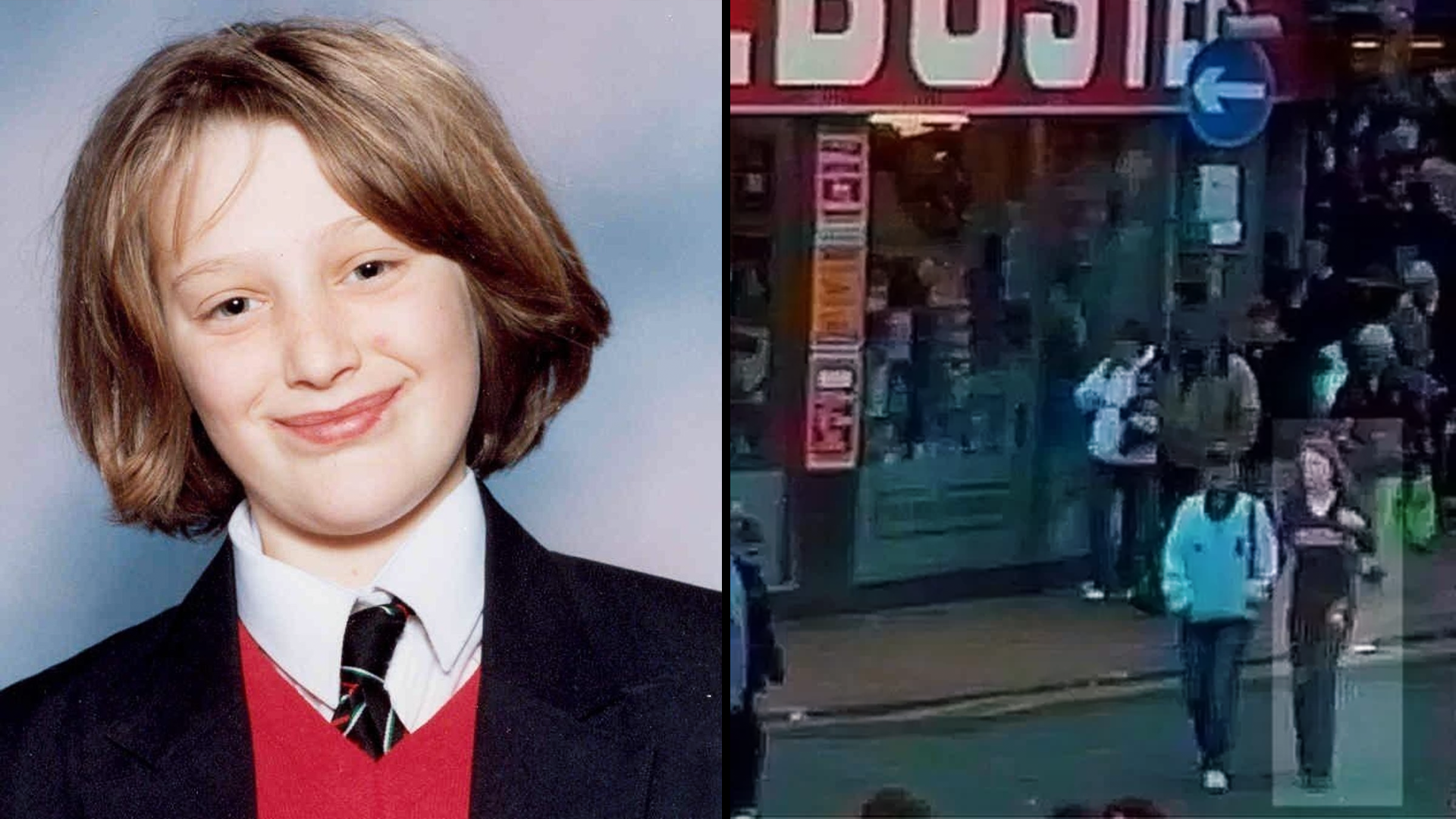Brits are calling on the government to recognize November 1 as the National Grooming Gang Day of Remembrance in memorial of the 20th anniversary of the disappearance and presumptive murder of a teenage girl in Blackpool, UK.
On November 1, 2003, Charlene Downes, then aged 14, disappeared from her home, with police believing that she was murdered within hours of her last sighting in the Blackpool town centre.
In 2007, Iyad Albattikhi and Mohammed Reveshi were charged with the girl’s murder, but the cases against them were dropped after police were accused of having handled the investigation “unprofessionally.” The men were ultimately paid over $420,000 USD each in compensation.
The only person ever convicted in the case was Downes’ grieving brother after he assaulted Albattikhi after the Jordanian joked that he had disposed of the child’s body by mincing it into the kebab meat he used at his take-out shop.
Today is National Grooming Gang Day of Remembrance. Remember all the thousands of young British girls betrayed and sacrificed on the altar of multiculturalism by Britain's craven politicians and elites.
— RAW EGG NATIONALIST (@Babygravy9) November 1, 2023
The case of Charlene Downs, in particular, is one of the most horrific cases… https://t.co/MukFfoTeU9 pic.twitter.com/rRlgciWHmH
During the investigation into Downes’ murder, it was discovered that up to 60 girls in their early teens had been groomed and sexually abused by men in the town.
The Downes case became the first high profile news story that revealed to the public the extent to which grooming gangs, involving mostly Arab and Pakistani men targeting British girls, had proliferated across the country.
Earlier this year, GB News reporter Charlie Peters released a documentary on the grooming gang phenomenon, revealing that in the years between 1997 and 2017, 1 in every 1700 Pakistani men in the country were prosecuted for their participation in such gangs. In some cities, the figure was as high as 1 in 73.
This Grooming Gang Remembrance day:
— T (@Uhtrecq) November 1, 2023
It is worth remembering the Home Office were tasked by Sajid Javid in 2020 to look into the link between ethnicity and the grooming gangs
In the report they quoted 4 studies that all showed a massive overrepresentation of Asian perpetrators pic.twitter.com/k7TBPT5cYo
However, at the time, police often failed to investigate the gangs due to concerns over “racism” or rioting in ethnic communities. As noted in the Jay report on the Rotherham grooming gangs and the Crowther report into those in Telford, the gangs were overwhelmingly comprised of Muslim men of non-British origin.
According to the Crowther report, police expressed a “reluctance” into launching investigations into the crimes due to the ethnicities of the alleged criminals.
“I have also heard a great deal of evidence that there was a nervousness about race in Telford and Wellington in particular, bordering on a reluctance to investigate crimes committed by what was described as the ‘Asian’ community,” Crowther revealed.
This year, a number of Brits banded together to call on the Government to mark November 1 as a date to remember all the victims of grooming gangs across the country.
One of those joining the call was Conservative Councillor Luke Shortland, who took to X (formerly Twitter) to pay tribute to the victims.
“Today, I am thinking of all the poor girls left at the mercy of these sadistic gangs by those who were supposed to protect them – and those still at risk of being groomed and killed,” Shortland posted on X. He added that he felt the term ‘grooming’ itself wasn’t “actually serious enough to describe the atrocities that these girls were put through – some chosen specifically because they were white.”
“Grooming” isn’t actually serious enough to describe the atrocities that these girls were put through – some chosen specifically because they were white.
— Cllr Luke Shortland 🩼 (@LukeForCoulsdon) November 1, 2023
The below is an extremely graphic example. “Grooming” does not do it justice.
Our country has never truly confronted this. pic.twitter.com/QriOPe2lXn
One horrendous example that Shortland noted was the case of Mohammed Karrar, who, after raping a 12-year-old girl, hit her with a baseball bat which he then inserted into her vagina, branded her with a hairpin “near her anal passage,” and injected her with heroin. “Our country has never truly confronted this,” Shortland asserted.
In an article advocating for the day to be marked, conservative commentator Samuel Martin wrote: “It is abundantly clear that deeds, not words, are required to remedy this ongoing scandal. As such, we require an end to grooming gang denialism wherever it exists, an investigation by the National Crime Agency into every town, city, council and police department where grooming gang activity has been reported and covered-up, and a memorial befitting a crisis of this magnitude.”







